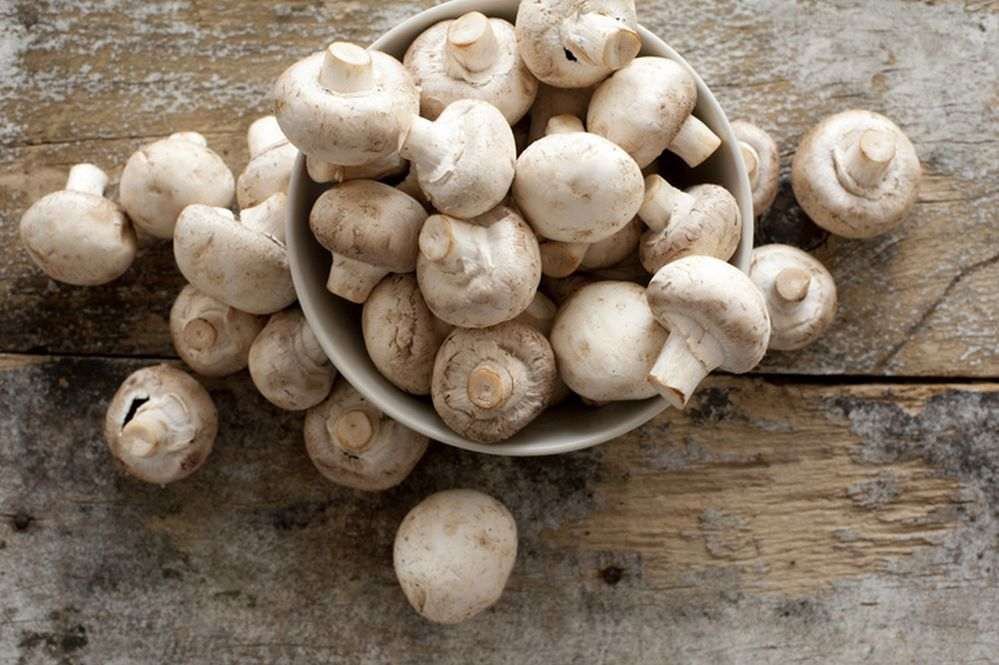[Disclosure: AgFunderNews’ parent company AgFunder is an investor in Chinova Bioworks.]
Chinova Bioworks, a Canadian startup producing natural preservatives and fining agents from upcycled mushroom stalks, aims to triple revenues this year on the back of explosive growth in beverages from non-alcoholic beer to upmarket sodas.
Founded by David Brown (COO) and Natasha Dhayagude (CEO) in 2016, Chinova is best-known for its Chiber natural preservative, which can replace synthetic preservatives in a wide variety of foods and beverages. Labeled as ‘mushroom fiber,’ it is heat-stable, effective at pH levels of 2-6.5 and the subject of a ‘no questions’ letter from the FDA concerning its GRAS (generally recognized as safe) status.
While Chiber’s mechanism of action has not yet been fully elucidated, the predominant theory is that the positively charged chitosan interacts with the negatively charged cell membrane of the spoilage microorganisms, which eventually leads to cell death.
The MAHA effect
In certain applications, technologies such as vacuum packing, aseptic packaging or high-pressure-processing have enabled companies to avoid preservatives altogether, Brown told AgFunderNews. But where preservatives are needed, brands that want to maintain their ‘clean label’ credentials are increasingly shifting towards natural options.
“Even before all of the MAHA [Make America Healthy Again] stuff, demand for natural alternatives to chemical preservatives has been growing and growing,” said Brown. “But with [HHS Secretary] RFK Jr and some states looking again at some preservatives, it’s accelerated. We’re now talking to brands that I would have never expected to ever speak to because they had no real impetus to get rid of chemical preservatives. But consumers don’t like seeing sorbate or benzoate on food labels.”
He added: “About half of our business right now is in beverages but we’re also seeing demand in yogurts, cream cheese, sauces, dressings, and dips. The great thing about Chiber is that it’s broad spectrum in that it works against all types of yeast, mold and bacteria, including pathogenic bacteria such as Listeria, E. coli, and Salmonella.”
Explosive growth
He added: “We’re up to about 60 people now [vs 35 two years ago]. We’re selling across the US, Canada, and Mexico; we’ve expanded with partners into Australia, New Zealand, and South America, and we’re waiting for regulatory approval in the EU, which we hope to have by the end of this year, early next.
“We’re not looking to raise any more money now, as about three years ago, we really turned the corner on being cash positive and started to service larger and larger clients. We’ve doubled every year for the last couple of years and I wouldn’t be surprised if we tripled over the next year.”
The company is now finalizing plans to expand its production facility at Prince Edward Island and working with leading US-based mushroom farmer Giorgio to upcycle its mushroom stalks to produce Chiber, he added. “We’re also working on some smaller satellite facilities in Australia and Brazil where we can send the raw fiber for processing so we don’t have to ship the liquid extract.”

Non-alcoholic beer and upmarket soda
One continued area of growth for Chiber is non-alcoholic beer, said Brown.
“Over the last year, [demand for] non-alcoholic beer has been insane. Once you remove the alcohol, beer is essentially barley juice and it’s ripe for spoilage. Some craft breweries are not the cleanest environments, either.”
But craft brewers don’t want to use synthetic preservatives, he noted. “As a result, some of them tunnel-pasteurize their beer, but that mutes the flavor and the beer doesn’t taste fresh and crisp anymore. It also limits how much you can carbonate it.
“Chiber can get them the same shelf-life that they would with tunnel pasteurization, with none of the downside. So you get no muted flavors, and you keep the carbonation levels people are looking for.”
Chinova Bioworks is also seeing strong demand for its natural preservative in sodas, energy drinks, sports drinks, and regular alcoholic beverages, he claimed. “Thermal pasteurization can really do a lot of damage to all kinds of beverages, both in terms of flavor and aroma but also in terms of negative implications for vitamins and nutrients.
“For these new, healthy, low sugar sodas, Chiber is just as effective as thermal pasteurization, so we can replace that process, cut costs and give them a better tasting beverage.”
Vegan fining agent
Chinova’s vegan fining agent MycoKleer is also gaining traction to clarify beer, juice, ready-to-drink coffee and other beverages, said Brown.
MycoKleer binds with yeasts, tannins, proteins, and other unwanted particles and can replace synthetic and animal-based fining agents including silica, PVPP, bentonite, isinglass, and gelatin.
In some cases, it can also reduce the number of mechanical filtration steps required to achieve a clear beverage, he claimed.
“A lot of brewers are spending hundreds of thousands of dollars a year on filters. MycoKleer can do the same job a lot faster at lower cost. In some cases it’s reducing the number of steps, but with most beers, you can replace filtration entirely.”
The post Chinova Bioworks rides MAHA wave, expands global footprint as more firms spurn synthetic preservatives appeared first on AgFunderNews.














